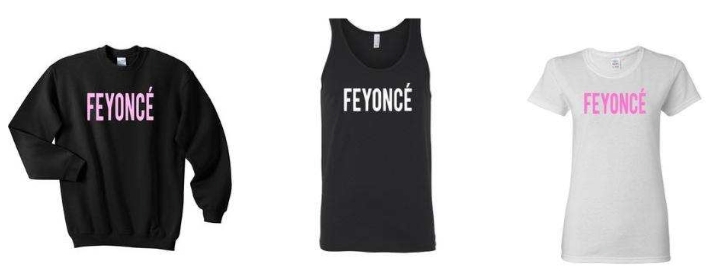And that is a loss for Beyoncé. Over two years after the mega-star musician filed a trademark infringement lawsuit against a similarly-name brand, she has been handed a loss. On Monday, a New York federal court refused to permanently ban defendants Andre Maurice and Leana Lopez from using the word Feyoncé on everything from t-shirts to kitchenware, holding that while the 37-year old Beyoncé is “exceedingly famous,” consumers are unlikely to be misled into believing that she has endorsed or is otherwise connected to the Feyoncé products.
Beyoncé filed suit against the San Antonio, Texas-based defendants in April 2016, alleging that they “have willfully traded upon the goodwill and notoriety of Beyoncé, arguably one of the most famous musical artists and entrepreneurs in the world” by offering for sale an array of “infringing merchandise including, but not limited to, the t-shirts, sweatshirts and mugs bearing the Feyoncé mark.”
The complaint, which cited claims of federal trademark infringement, unfair competition, and trademark dilution, among a number of other statutory and common law violations, further asserted that the defendants’ use of the Feyoncé mark is allegedly “causing immediate and irreparable harm to [Beyoncé],” and as a result, the singer sought to prevent the defendants from immediately and permanently selling the products at issue and monetary damages “on account of Defendants’ egregious, willful and wanton activities, including exemplary damages, attorneys’ fees and costs.”
The court was not persuaded. In a decision for the U.S. District Court for the Southern District of New York, U.S. District Judge Alison Nathan stated that the two trademarks, Beyoncé and Feyoncé, are, in fact, similar, including in terms of pronunciation, but they have markedly different connotations, which consumers will understand. “As a result, Feyoncé is a play on words, which could dispel consumer confusion that might otherwise arise due to its facial similarity to the Beyoncé mark,” Nathan wrote in her decision.
Moreover, she held, “Many purchasers of Feyoncé products are, in fact, engaged … Viewed in the light most favorable to defendants, this evidence suggests that consumers are understanding the pun, rather than confusing the brands.”
The court dismissed Beyoncé’s trademark infringement claim, as well as her claims of unfair competition and trademark dilution, and ordered both sides to discuss a possible settlement and trial dates for the claims that are still on the table.
It is not yet clear whether Beyoncé’s team with appeal the trademark ruling.
*The case is Knowles-Carter et al v. Maurice et al, 1:16-cv-02532 (SDNY).











